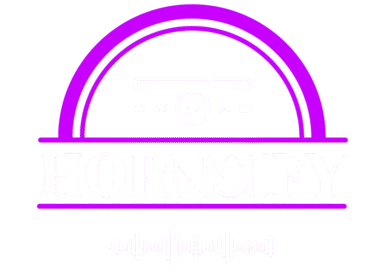General
Music Theory for Beginners in Nigeria

Music Theory for Beginners in Nigeria: A Comprehensive Starter Guide
Music is a universal language, and understanding its structure can unlock endless possibilities for creativity and expression. 🎵 If you’re a beginner in Nigeria exploring music, learning music theory is the perfect place to start. It’s the foundation for mastering any instrument, reading sheet music, and even composing your own songs!
At Hornsify, we’ve helped countless students discover the beauty of music theory. This comprehensive guide breaks down everything you need to know as a beginner. From basic concepts to practical tips, you’ll have all the tools to get started on your musical journey. Let’s dive in!
What is Music Theory and Why is it Important?
What is Music Theory?
Music theory is the study of how music works. It explains the building blocks of music, including notes, chords, scales, rhythms, and how they all come together to create the songs we love.
Why is Music Theory Important?
- Understanding Your Instrument: Learn why certain notes sound good together and how to create melodies.
- Reading Sheet Music: Music theory helps you interpret written music, making it easier to play compositions.
- Composing and Improvising: Use your knowledge to create your own songs or improvise during performances.
- Building Confidence: When you understand music, playing becomes less intimidating and more enjoyable.
Hornsify Success Story: Adeola, one of our students, struggled with playing the keyboard until she learned basic music theory. Understanding chords and scales transformed her practice sessions, and she now plays confidently at her church!
The Basics of Music Theory for Beginners
Let’s break down the core concepts every beginner should know:
1. Musical Notes
- The foundation of music is built on 7 notes: A, B, C, D, E, F, G.
- These notes repeat in higher or lower pitches (octaves).
2. Scales
- A scale is a series of notes played in a specific order.
- The Major Scale (e.g., C Major: C, D, E, F, G, A, B) is happy and bright.
- The Minor Scale (e.g., A Minor: A, B, C, D, E, F, G) is more somber and emotional.
3. Chords
- Chords are groups of notes played together.
- Examples of basic chords:
- C Major Chord: C, E, G
- A Minor Chord: A, C, E
- Chords form the harmony in music and are essential for playing most songs.
4. Rhythm and Timing
- Beats: The steady pulse of music.
- Measures: Groupings of beats, often in patterns like 4/4 or 3/4.
- Time Signature: Indicates how many beats are in each measure and how they’re counted.
Learning to Read Sheet Music
Reading sheet music is like learning a new language, but it’s simpler than you think!
Why Reading Sheet Music Matters
- It allows you to play music exactly as the composer intended.
- It enhances your understanding of tempo, dynamics, and articulation.
Elements of Sheet Music
- Staff: The set of five lines where notes are written.
- Clefs:
- Treble Clef (G Clef) for higher-pitched instruments.
- Bass Clef (F Clef) for lower-pitched instruments.
- Notes and Rests: Represent sounds and silences, each with specific durations.
- Key Signatures: Indicate the scale or key of the piece.
Beginner Tip: Start with simple pieces and gradually work your way to more complex compositions.
Tools and Resources for Learning Music Theory in Nigeria
Recommended Tools
- Apps:
- Musictheory.net: Interactive lessons on scales, chords, and rhythms.
- Yousician: A fun, game-like app for theory and instrument practice.
- Books:
- “The Complete Idiot’s Guide to Music Theory” is beginner-friendly and detailed.
- Hornsify’s Personalized Lessons: Integrate theory with hands-on practice for maximum results.
How to Use These Tools
- Dedicate regular time to learning and applying concepts.
- Pair theory lessons with practical exercises on your instrument.
Tips for Practicing Music Theory as a Beginner
- Start Small: Focus on one concept at a time, such as mastering the major scale.
- Consistency is Key: Practice theory daily for 15–30 minutes to retain information.
- Apply What You Learn: Use your instrument to play scales, build chords, and experiment with rhythms.
- Seek Feedback: Share your progress with instructors or peers for constructive criticism.
Pro Tip: Don’t rush. Mastering one concept thoroughly is better than skimming through several.
How Hornsify Can Help You Learn Music Theory
At Hornsify, we make learning music theory easy and enjoyable:
- Expert Instructors: Our teachers break down complex topics into simple, understandable lessons.
- Customized Plans: Lessons tailored to your pace, goals, and instrument of choice.
- Interactive Sessions: Combine theory with playing your favorite instrument.
- Success Stories: Many Nigerian beginners have achieved their musical dreams with us.
Contact us via WhatsApp at +2348135404292 or visit www.hornsify.com to explore our beginner-friendly music programs.
Conclusion
Music theory is the key to unlocking your full potential as a musician. By understanding the basics—notes, scales, chords, and rhythms—you’ll build a solid foundation for playing any instrument or even composing your own songs.
At Hornsify, we’re here to guide you every step of the way. From interactive lessons to personalized support, we’ll help you master music theory and enjoy the journey. Ready to get started?
Contact us today via WhatsApp at +2348135404292 or visit www.hornsify.com to begin your musical journey. Let’s make music together! 🎶
Would you like any additional resources or examples included in the blog? 😊


